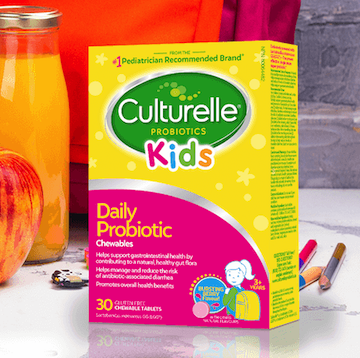Five Steps to Take Care of Your Digestive Health
Everyone’s digestive system behaves differently; some stomachs are very sensitive and upset easily while others can seem to eat almost anything unbothered. If you’re sensitive you know it can be difficult to determine how to help support your digestion and minimize irritation. These five tips are meant to help you get on track to a happy, healthy digestive system. However, even if you aren’t on the sensitive scale, the below tips can help ensure that your digestive tract is being kept in tip-top shape.
1. Eat a High-Fiber Diet
Fiber is known for being an important part of a healthy, balanced diet, but what is it about fiber that makes it so good for digestion? To start, there are two main types of fiber: soluble fiber, which forms a gel-like consistency when dissolved in water, and insoluble fiber, which doesn't dissolve. Soluble fiber can be found mostly in citrus fruits, some vegetables such as squash, carrots and beans, and grains like oats and barley. It is beneficial in several body processes. Insoluble fiber is the fiber that helps promote digestion. You can get insoluble fiber best from whole grains like wheat flour and bran, vegetables such as celery, greens (spinach, kale, lettuce), eggplant and more. Insoluble fiber is great at cleaning out the digestive tract because it doesn’t fully break down and passes through your system mostly intact, taking other waste with it.1
2. Incorporate Culturelle® Into Your Diet
The beneficial bacteria in your digestive tract is important in helping to break down foods and absorbing nutrients, but not all bacteria are good. Some bacteria can cause occasional gas, diarrhea and bloating.2 That’s where Culturelle® comes in! Culturelle®Digestive Health Daily Probiotic contains naturally sourced ingredients that work with your body to support digestive health. With 10 billion active cultures of Lactobacillus rhamnosus GG (LGG®) it helps promote a healthy balance of bacteria within your intestinal tract.
3. Avoid Excessive Caffeine
People love their morning cup of coffee; in fact, about 59 percent of American’s enjoy a cup of coffee every day.3 However, coffee could be the source of your occasional digestive upset. Regular coffee is naturally acidic and while your stomach already contains acid, adding more can increase occasional stomach issues and irritate the intestinal lining.4 Not to mention, caffeine stimulates the large and small intestines more than normal and causes extra contractions, increasing the movement of anything processing through your digestive tract. Consuming caffeine with food can also cause your stomach to empty its contents into the small intestine prematurely, causing your intestines to work harder to digest the food, often leading to occasional abdominal pain.5
4. Limit Foods That Are High In Fat
Recently, fat has had a little bit of a comeback. Gone are the days when people feared eating the tiniest bit of fat and gaining weight. Fat, mostly monosaturated and polyunsaturated, has been shown to be beneficial to our diets and can be enjoyed, like everything, in moderation.6 Fat, however, shares something in common with caffeine when it comes to digestion. High-fat foods such as ice cream, red meats, cheese and butter can over-stimulate the digestive tract causing foods to pass faster or slower through your intestines depending on your system.7 This can cause either diarrhea or constipation, especially if you already have intestinal irritation. It’s best to eat these foods in moderation and keep them at bay if you’re already experiencing digestive upset.
5. Do Yoga
When your digestion is out of whack, the last thing you probably want to do is exercise. But yoga, which has been touted as the answer to many health-related concerns, can also help to ease digestive upset.8 The combination of deep, deliberate breathing, specific poses and abdominal twists, can help to gently massage the organs and begin to relieve some intestinal discomfort. Try some poses that involve twisting, such as reversed triangle pose or bow pose which helps massage the abdominal organs.
Start implementing these tips into your health routine and your digestive system should be thanking you!



